North Korea capable of hitting US mainland by ICBM: Pyongyang
North Korea claims it can test-launch an intercontinental ballistic missile (ICBM) capable of striking the US mainland at any time from any location, saying Washington’s "hostile" policy has forced Pyongyang to develop such missiles.
"The ICBM will be launched anytime and anywhere determined by the supreme headquarters of the Democratic People's Republic of Korea (DPRK)," the state-run Korean Central News Agency (KCNA) quoted an unnamed North Korean Foreign Ministry spokesman as saying on Sunday.
The announcement came a week after North Korean leader Kim Jong-un said his nuclear-capable country was very close to test-launching an ICBM.
The spokesman also said that Washington "is wholly to blame for pushing the DPRK to have developed ICBM as it has desperately resorted to anachronistic policy hostile toward the DPRK for decades to encroach upon its sovereignty and vital rights."
Some experts have said that while the reclusive country may be close to test-launching an ICBM, it might take years to perfect the long-range missiles capable of delivering nuclear warheads.
In June, the US-Korea Institute, a US think tank based at Johns Hopkins University, speculated that North Korea could develop ICBM technology by 2020.
Earlier in the day, Thae Yong-ho, a former North Korean diplomat who defected in July and currently resides in London, said Pyongyang could reach the technology by the end of this year or early next year, adding that the secretive country also had set the goal of "developing miniaturized nuclear weapons that can fit atop" the ICBM.
Once fully developed, the North’s ICBM can reach the US territory, which is some 9,000 kilometers from the country. The intercontinental missiles have a minimum range of about 5,500 kilometers, but some of them can be designed to hit targets located about 10,000 kilometers or further.

North Korea tested different types of missiles at an unprecedented rate last year, and the capability to mount a nuclear warhead on a missile is especially considered a threat by its neighbors South Korea and Japan, as well as the United States.
Pyongyang conducted its fifth and biggest nuclear test on September 9, prompting the UN Security Council to impose a fresh round of sanctions against North Korea late November.
Despite sanctions and international pressure, Pyongyang has pledged to strengthen its military capability to protect itself from the threat posed by the presence of the US forces in the region.
North Korea says it will not give up on its nuclear deterrence unless Washington ends its hostile policy toward Pyongyang and dissolves the US-led UN command in South Korea. Thousands of US soldiers are stationed in South Korea and Japan. Washington also is to deploy its Terminal High-Altitude Area Defense (THAAD) system to South Korea to protect it against North Korea's alleged threats.
Israel preparing to stay in southern Lebanon after ceasefire: Report
Israeli pressure on Hamas ‘hardly helped’; swap deal necessary: Ex-Mossad chief
Far-right Israeli minister Ben-Gvir again storms al-Aqsa Mosque
Iran: Israel’s attack on journalists’ vehicle in Gaza amounts to ‘war crime’
VIDEO | Israel’s war spending
Palestine Action wins again
VIDEO | Palestinian Authority's blockade of Jenin refugee camp reaches third week
Dec. 25: ‘Axis of Resistance’ operations against Israeli occupation


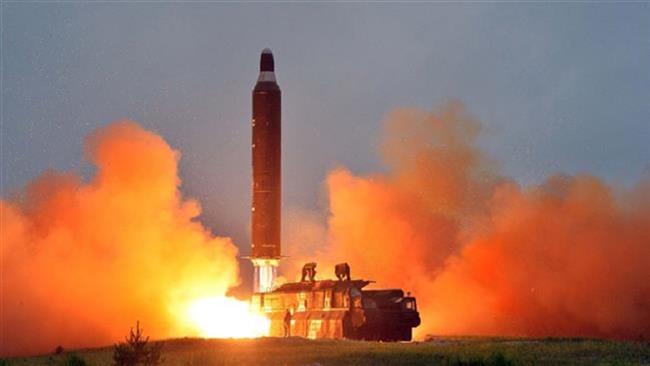
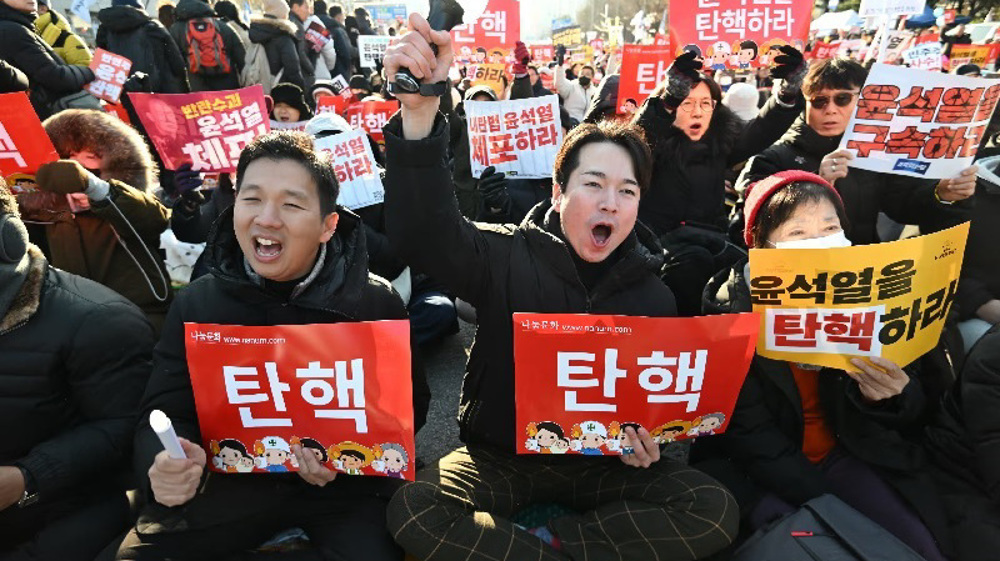
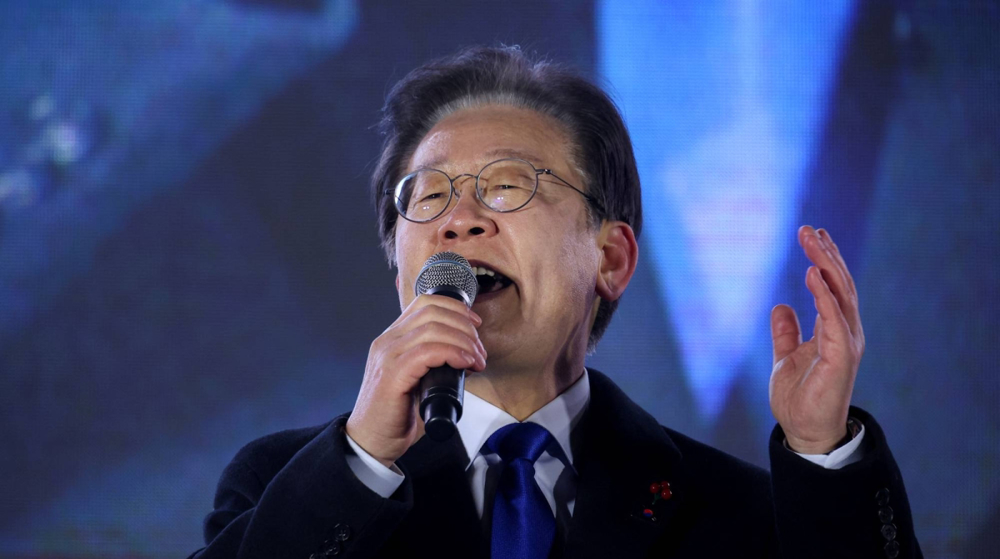
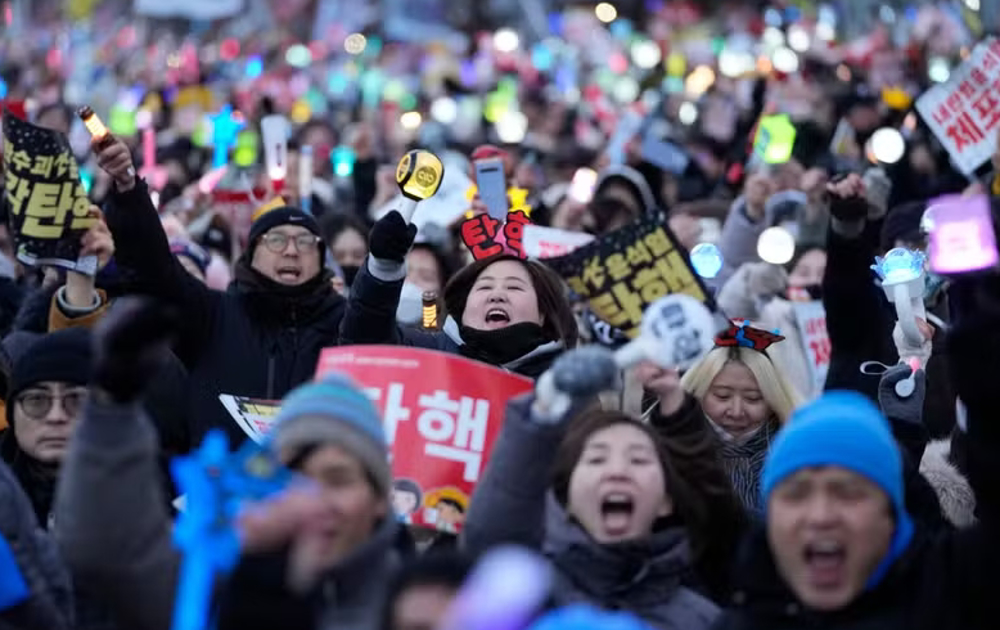



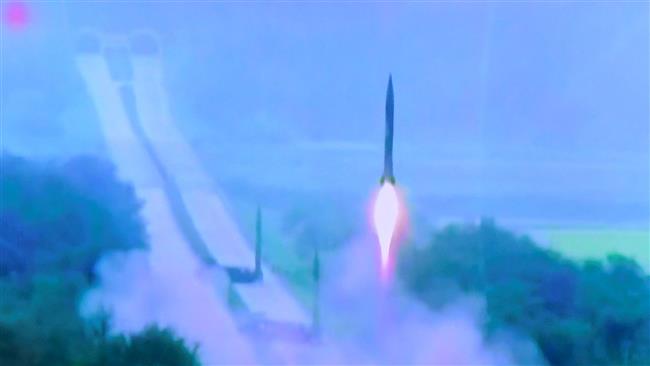



 This makes it easy to access the Press TV website
This makes it easy to access the Press TV website